Many of the Chamber’s office bearers serve as NPC Deputies or CPPCC National Committee Members. Earlier, they attended the annual plenary sessions of the NPC and the CPPCC National Committee (“Two Sessions”) to express their views on issues such as the economic development and social livelihoods of the country and Hong Kong as well as the response to the COVID-19 pandemic, actively participating themselves in discussion of national affairs.
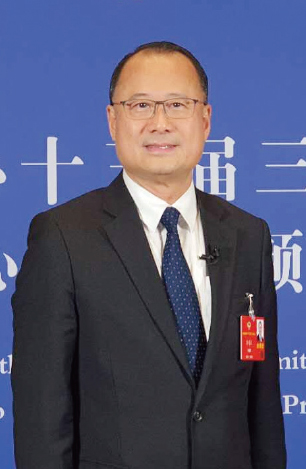
Jonathan Choi: Connecting with ASEAN and the South West China to Boost Cooperation withing the Greater Bay Area
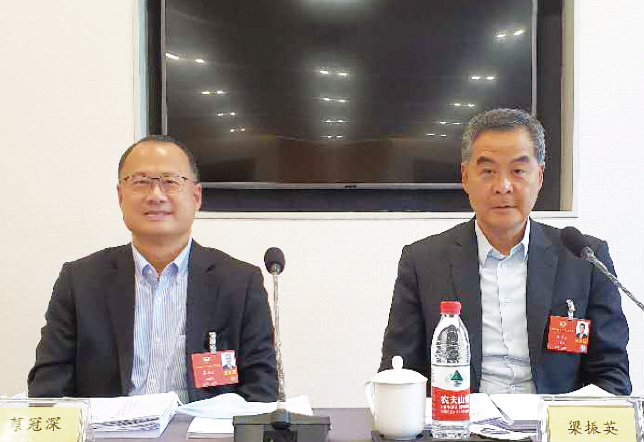 In response to the severely challenging economy amidst the current pandemic, Jonathan Choi, the Chamber’s Chairman (CPPCC National Standing Committee Member) submitted a few proposals during this year’s “Two Sessions”. His primary foci are to link up the Greater Bay Area and the ASEAN to help revive Hong Kong’s economy.
In response to the severely challenging economy amidst the current pandemic, Jonathan Choi, the Chamber’s Chairman (CPPCC National Standing Committee Member) submitted a few proposals during this year’s “Two Sessions”. His primary foci are to link up the Greater Bay Area and the ASEAN to help revive Hong Kong’s economy.
Acknowledging that economic globalization is inevitable, Choi believed Hong Kong must strive to put its unique function in the economic activities in the member countries of the “Regional Comprehensive Economic Partnership” (RCEP) into full play to further consolidate its close collaboration with traditional markets such as the ASEAN. Choi reckoned the Central Government should make better use of Hong Kong’s strength as an intermediary platform to promote the mutually beneficial development amongst the mainland, Hong Kong and ASEAN. In terms of the Guangdong-Hong Kong-Macao Greater Bay Area (Greater Bay Area), Choi noted that the various differences amongst the three places have become their barriers and the weakest link in the construction of the Greater Bay Area. He also felt strongly that the future construction of the Greater Bay Area should make better use of community bodies. “Guangdong-HK-Macao Bay Area Entrepreneurs Union”, for example, hosted an exemplary promotion briefing of the Greater Bay Area in Tokyo in April 2019, which was attended by many entrepreneurs and government officials.
Looking out from the Greater Bay Area, Choi noted the development of the Yunnan Pilot Free Trade Zone. The initiative did not only promote innovation in Yunnan’s collaboration, but also effectively aligned with the national strategies in the Beijing-Tianjin-Hebei region, the Greater Yangtze River Delta, the Greater Bay Area and the Western Development Policy. It is favourable for improving Yunnan’s strengths in establishing itself as a centre that drives the development of South and Southeast Asia. Choi proposed to set up a demonstrative zone for deepened cooperation between Yunnan and Hong Kong and to initiate a pilot program, hoping to further exert Hong Kong’s function in connecting Yunnan and the Greater Bay Area.
While the target GDP growth was not mentioned in the work report in this year’s “Two Sessions”, a stronger emphasis has been placed on stabilizing employment and the livelihood of Chinese nationals. Choi described such measures as very practical and human-oriented. On the other hand, all committee members visiting Beijing this year went through stringent tests and their movement were also restricted. Choi thought these measures are reasonable during the current pandemic. Although the duration of the sessions was shortened, its contents were not. This demonstrated the high efficiency in the meetings and such outcomes should be recognized.
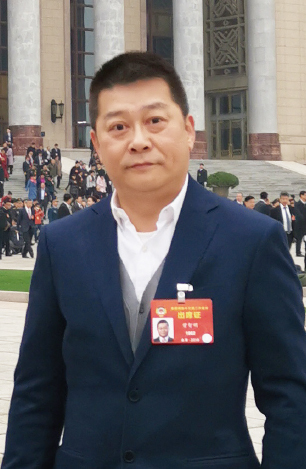
Ricky Tsang: Doctors and Nurses Died on Duty should be Posthumously Recognized as Martyrs
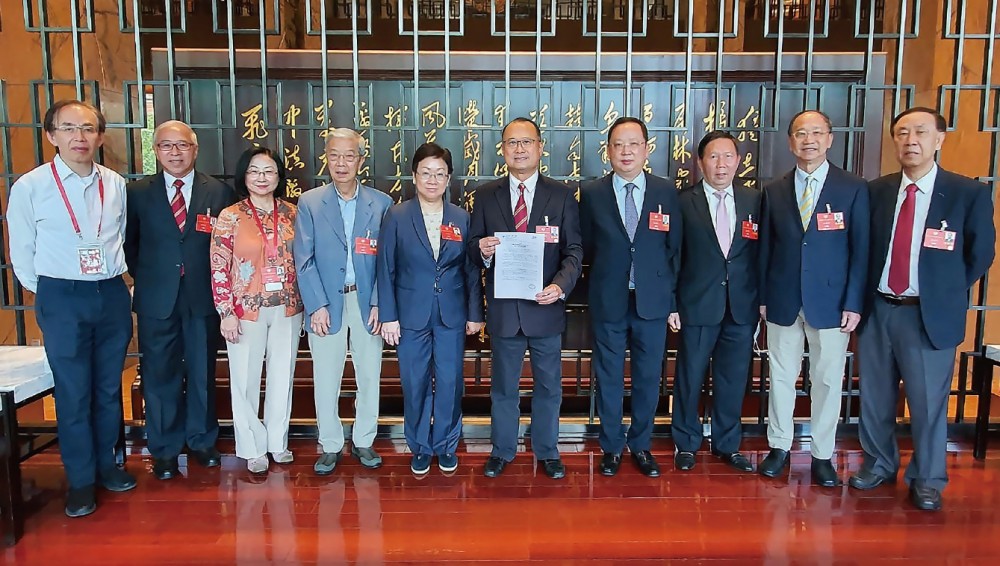 Doctors and nurses have always been at the forefront fighting against the COVID-19 pandemic since its onset, with many of them sacrificing their precious lives as a result. Ricky Tsang, the Chamber’s Vice-chairman (CPPCC National Committee Member), believes that the pandemic is a peacetime war without smoke from guns, and the affected areas are veritably in a “wartime state”. At the onset of the pandemic, the first thought of ordinary people was to escape and retreat safely, but medical personnel have been courageous in going against their natural instinct to shoulder their sacred duty, making heroic dedications to overcome the pandemic even at the cost of their lives, which is truly touching and commendable. He suggested that doctors and nurses who have lost their lives on the line of duty should be posthumously recognized as martyrs.
Doctors and nurses have always been at the forefront fighting against the COVID-19 pandemic since its onset, with many of them sacrificing their precious lives as a result. Ricky Tsang, the Chamber’s Vice-chairman (CPPCC National Committee Member), believes that the pandemic is a peacetime war without smoke from guns, and the affected areas are veritably in a “wartime state”. At the onset of the pandemic, the first thought of ordinary people was to escape and retreat safely, but medical personnel have been courageous in going against their natural instinct to shoulder their sacred duty, making heroic dedications to overcome the pandemic even at the cost of their lives, which is truly touching and commendable. He suggested that doctors and nurses who have lost their lives on the line of duty should be posthumously recognized as martyrs.
Tsang said that while well-trained military personnel who have sacrificed for the people are undoubtedly worthy of respect, the sacrifice of doctors and nurses as civilians should not be underestimated. Hence, we not only should give them the most solemn praise for their integrity, but also the sincerest financial relief. “Doctors and nurses are true heroes sacrificing themselves to defend or save people’s lives, and when the country is in distress, they go against their natural instinct, putting their own lives in danger without fear. Their injury or death is a result of their battle against the pandemic. Thus, their injury or death should not be regarded as work related. Those injured should be rewarded according to military merits, while those who have sacrificed their lives should be treated as martyrs.”
According to China’s Regulations on Honouring Martyrs: martyrs refer to citizens who have sacrificed themselves when investigating and punishing illegal criminal activities in accordance with law, carrying out tasks in relation to national security or counter-terrorism or disposing of emergency incidents; in emergency rescue and disaster relief or in any other rescue and protection of national assets, collective assets, and life and properties of citizens; when carrying out tasks regarding foreign affairs or tasks in relation to foreign aid and international peacekeeping assigned by the State; in carrying out scientific research testing tasks on weapons; or whoever makes such outstanding sacrifices in any other aspect that he/she can be a role model.
Therefore, Tsang suggested to recognize doctors and nurses who unfortunately died in the line of duty in the fight against the COVID-19 pandemic as “martyrs”; erect a monument in memory of doctors and nurses who fought against the COVID-19 pandemic; and set up a special support fund for China’s doctors and nurses so that all doctors and nurses who die in the fight against the COVID-19 pandemic or in various future disaster relief efforts or are injured due to emergencies while in a medical position are accordingly given a higher level of care than ordinary workers.
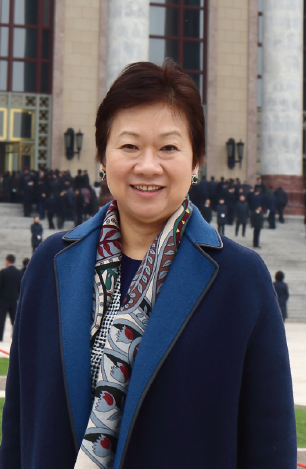
Connie Wong: Tell a Good Story about China’s Pandemic Fight and Help Hong Kong Integrate into National Development
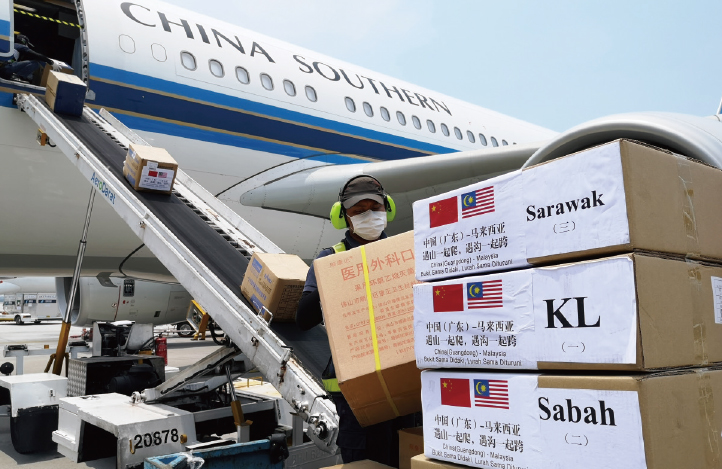 With the COVID-19 pandemic spreading across the world, China has been actively helping other countries while striving to put the pandemic under control domestically. Connie Wong, the Chamber’s Vice-Chairman (Deputy Director of the Committee for Handling Proposals of CPPCC and CPPCC National Committee Member), noted that China has so far provided medical supplies to nearly 100 countries, dispatched medical teams to 19 countries and shared its medical experience with over 200 countries and regions via videos. China has made tremendous contributions to protect the lives and safety of people around the world through sincere and effectual actions. However, some Western politicians used the media to slander China to shirk their own responsibilities for poor pandemic control as well as to contain China. In her view, it is urgent and necessary to tell a good story about China’s pandemic control to counter the malicious smear against the country.
With the COVID-19 pandemic spreading across the world, China has been actively helping other countries while striving to put the pandemic under control domestically. Connie Wong, the Chamber’s Vice-Chairman (Deputy Director of the Committee for Handling Proposals of CPPCC and CPPCC National Committee Member), noted that China has so far provided medical supplies to nearly 100 countries, dispatched medical teams to 19 countries and shared its medical experience with over 200 countries and regions via videos. China has made tremendous contributions to protect the lives and safety of people around the world through sincere and effectual actions. However, some Western politicians used the media to slander China to shirk their own responsibilities for poor pandemic control as well as to contain China. In her view, it is urgent and necessary to tell a good story about China’s pandemic control to counter the malicious smear against the country.
Wong suggested that the country should drive joint efforts between the government and the people to form a complete, society-wide, broad-ranging and multi-perspective narrative to tell comprehensive, in-depth and moving stories about China’s concerted efforts as a people to combat the pandemic and save lives, reflecting the country’s important role in international cooperation against the pandemic and fully highlighting its image as a great power.
She hopes that the Central Government will spearhead joint communication efforts and leverage new media and the power of international mainstream media, overseas Chinese and overseas students to correctly tell stories about China’s efforts in combating the pandemic. For Hong Kong, as it is one of the most well-connected areas in the world for the flow of people, logistics, services, capital and information, it should leverage its unique strengths of establishing overseas communication centers for telling China’s stories.
In addition, Wong believes that as China is a strong backing for Hong Kong’s development, it is essential to promote Hong Kong’s integration into the country’s overall development and capture the country’s development opportunities while maximizing its strengths to meet the country’s needs to achieve win-win development for both places. In this regard, she has the following suggestions:
1. Leverage Hong Kong’s strengths for the development of the “Belt and Road” Initiative. As its legal, financial, accounting and other professional services are among the best in the country, Hong Kong should strive to provide “Hong Kong wisdom” for China to open up to the rest of the world as well as attract investment and talent. 2. Accelerate mutual recognition of professional qualifications. This will not only provide Hong Kong professionals with a broad space for development, but also help raise the standard of professional services in the Mainland. 3. Further create conditions to entice young Hong Kongers to work, start business and live in the Mainland in order to enhance their national identity. 4. Further simplify tax procedures and introduce detailed implementation rules to attract more people from Macao and Hong Kong to the Greater Bay Area and promote Hong Kong’s better integration into national development.
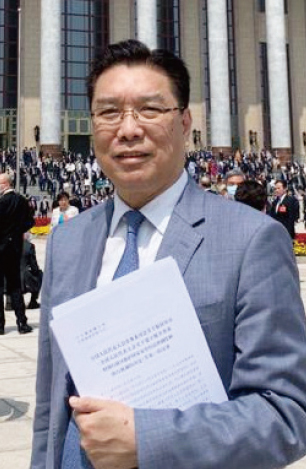
Tommy Li: Promote Integrated TCM Development in both Places
 Tommy Li, the Chamber’s Vice-Chairman (NPC Deputy), focused on the topic “revitalizing the development of Traditional Chinese Medicine (TCM)”. He noted that China has successfully improved the cure rate by integrating TCM and western medicine amid this year’s COVID-19 pandemic. Integrated therapy with TCM and western medicine will be a major trend in medical system development in the foreseeable future. Therefore, he put forward proposals such as “building a TCM city in the Greater Bay Area and making it a leading player in TCM development”. He hoped that a pilot can be set up in the Greater Bay Area to strengthen the interconnection mechanism for traditional Chinese patent medicines, promote the exchange and training of talents in integrated TCM and Western medicine, and set up a clinical database on TCM in Hong Kong and the Mainland for the integrated development of TCM in both places and propel TCM to the world stage.
Tommy Li, the Chamber’s Vice-Chairman (NPC Deputy), focused on the topic “revitalizing the development of Traditional Chinese Medicine (TCM)”. He noted that China has successfully improved the cure rate by integrating TCM and western medicine amid this year’s COVID-19 pandemic. Integrated therapy with TCM and western medicine will be a major trend in medical system development in the foreseeable future. Therefore, he put forward proposals such as “building a TCM city in the Greater Bay Area and making it a leading player in TCM development”. He hoped that a pilot can be set up in the Greater Bay Area to strengthen the interconnection mechanism for traditional Chinese patent medicines, promote the exchange and training of talents in integrated TCM and Western medicine, and set up a clinical database on TCM in Hong Kong and the Mainland for the integrated development of TCM in both places and propel TCM to the world stage.
Meanwhile, another focus of this year’s annual NPC session was the adoption of the national security law for Hong Kong. Li believes that the Central Government has always placed great trust in Hong Kong. However, following a series of riots, the NPC Standing Committee, after careful consideration, has no alternative but to put forward legislation to safeguard national security in order to protect the overall security interests of the country and Hong Kong, which is also the will of the vast majority of our citizens. He pointed out that the enactment of the law is aimed specifically at a small group of Hong Kong independence activists who intend to split the country. For citizens to live in peace and work in contentment, it is necessary to use legislation to ensure the long-term security and stability of the society and maintain the steady sustainability of the “One Country, Two Systems” principle.
Regarding his trip to Beijing, Li said that he deeply felt the country’s determination and strict measures to control the pandemic. Insisting on putting people’s lives and health first, it reported on the pandemic in an open, transparent, responsible and timely manner. As a developing country with 1.4 billion people, China’s feat in effectively controlling the pandemic in a short period of time is a demonstration of its spirit of national unity and solidarity. Besides wearing a mask, participants of the session had to set off earlier to Shenzhen for a nucleic acid test and then undergo another test upon arrival in Beijing to ensure safety. It is worthy for the rest of the world to learn from the country’s rigorous and conscientious efforts to control the pandemic.
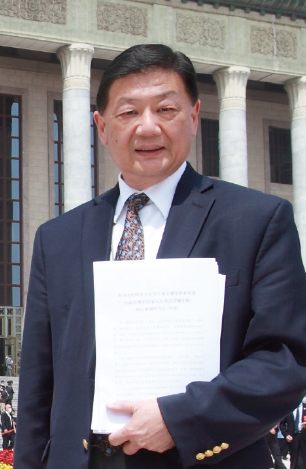
Herman Hu: Emphasis on Hygiene and Health Protection; Civil Code has Long-Term Benefits
 Herman Hu, the Chamber’s Vice-Chairman (NPC Deputy), is committed to upholding the “One Country, Two Systems” principle and submitted eight proposals on Hong Kong’s politics, economy, public hygiene and health, technology and energy.
Herman Hu, the Chamber’s Vice-Chairman (NPC Deputy), is committed to upholding the “One Country, Two Systems” principle and submitted eight proposals on Hong Kong’s politics, economy, public hygiene and health, technology and energy.
Regarding local politics, Hu believes it is necessary to keep the “One Country, Two Systems” principle stable and far-reaching, promote the Greater Bay Area as a new world-class financial, commercial and technological hub, and use the Greater Bay Area as an opportunity for Hong Kong to further accelerate its development. At a time when the pandemic is not yet fully contained effectively, Hu believes that the sale and consumption of wild animals should be strictly prohibited and the response to public health crisis should be strengthened, which could be used as an opportunity to promote the development of smart health and wellness industries. Regarding technology and energy, sports-focused Hu pointed out the need to step up promotion of sports technology in order to build the country into a strong sports power and continuously rationalise the industrial ecology for innovation and technology (I&T) development. He also advocated greater use of clean energy to ensure the sustainable development of the environment.
Hu noted that one of the important outcomes of this year’s “Two Sessions” was the adoption of the Civil Code of the People’s Republic of China. He explained that as the new China’s first law code since its founding, the Civil Code is a fundamental law with a solid foundation, stable expectations and long-term benefits. The Hong Kong business community will have a more comprehensive legal protection and basis for doing business and living in the Mainland, enabling them to create more opportunities while developing in a more ideal and equal business environment. In addition, he expressed his full support for a reasonable and constitutional national security law for Hong Kong and is convinced that Hong Kong would regain peace and vitality once the relevant legislation is completed.
Hu described the arrangements for this year’s “Two Sessions” as rigorous, conscientious and meticulous. After staying in Shenzhen for a one-night quarantine before going to Beijing, his life has been very regular and special during his nine days in Beijing. He recalled that he was most impressed by the very thoughtful and careful arrangements made by the staff. Besides the one-person-one-table system for dining, they provided individually packaged anti-epidemic supplies every day and regularly disinfected the hotel’s public facilities, with distance-keeping reminders placed on lift floors.
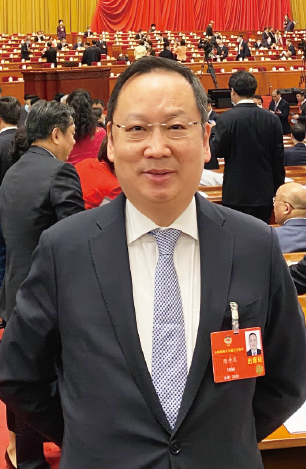
Rock Chen: Regulation of Fintech Industry should be Strengthened
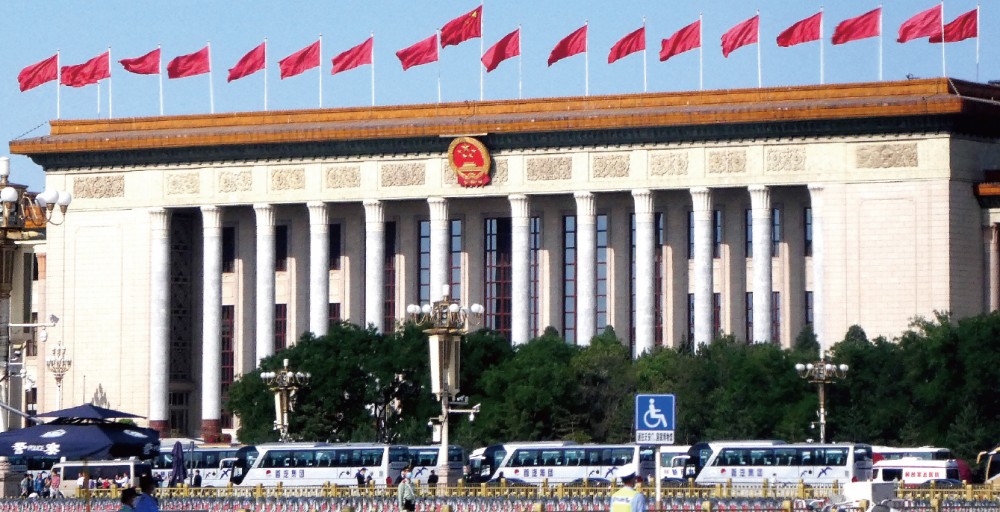 In the era of rapid development of fintech (financial technology) in China, some regulatory issues have remained unresolved. In fact, regulation of technology has always been an important part of the development of China’s fintech industry and a focus area for regulatory authorities. Rock Chen, the Chamber’s Vice-Chairman (CPPCC National Committee Member), believes that reflecting on and addressing the industry’s problems and potential risks is important in promoting the healthy and orderly development of Internet finance.
In the era of rapid development of fintech (financial technology) in China, some regulatory issues have remained unresolved. In fact, regulation of technology has always been an important part of the development of China’s fintech industry and a focus area for regulatory authorities. Rock Chen, the Chamber’s Vice-Chairman (CPPCC National Committee Member), believes that reflecting on and addressing the industry’s problems and potential risks is important in promoting the healthy and orderly development of Internet finance.
According to Chen, because it is difficult to fully monitor and control the internet world, some Internet financial services are not regulated or exploit the gaps in the existing sector-based regulatory system for profits. Also, some large Internet companies have basically become financial holding groups engaging in financial-related businesses without direct regulation. At the same time, because the barriers to entry for Internet finance are lower than those in the traditional financial industry, many information security technologies carry high risks, which poses a significant cybersecurity risk.
Moreover, it is difficult for internet finance platforms to ascertain the authenticity of the borrower’s financial situation and most online financial applicants are low- and middle-income individuals or MSMEs that might falsely report or underreport their solvency and financial information, with frequent issues such as multiple borrowing and repeated granting of loans exposing the entire financial system to higher risks. Meanwhile, although the internet technology is mature, the entire internet financial transaction will face the risk of a complete network paralysis should the network hardware/software or underlying protocols fail.
Chen suggested to strictly enforce the principle of licensing financial operations to safeguard the barriers of entry for businesses, step up punishment and increase the cost of violation for anyone conducting financial business without permission, and mandatorily include holding groups formed by Internet enterprises in the scope of regulation. At the same time, set the regulatory baseline and define the entry criteria for Internet finance, such as network technology security standards, customer data retention standards and cyber crisis response and notification, and accelerate the formulation of Internet financial technology rules and national standards.
As internet finance relies on electricity, to cope with any sudden financial crisis caused by natural disasters, the authorities should formulate a series of contingency plans to enable the business community to reduce major financial losses in the event of natural disasters. To prevent people from taking advantage of the loopholes in the regulation of Internet finance for malicious debt evasion, he suggested that all licensed Internet finance companies must mandatorily be included in the credit reporting system to avoid potential financial risks.
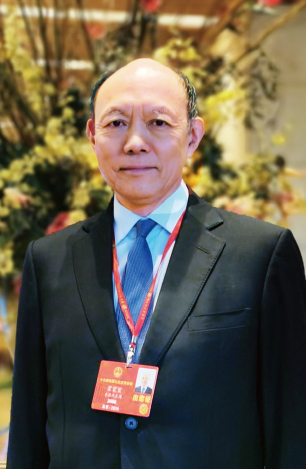
Ian Fok: Reforming Healthcare and Promoting Traditional Culture
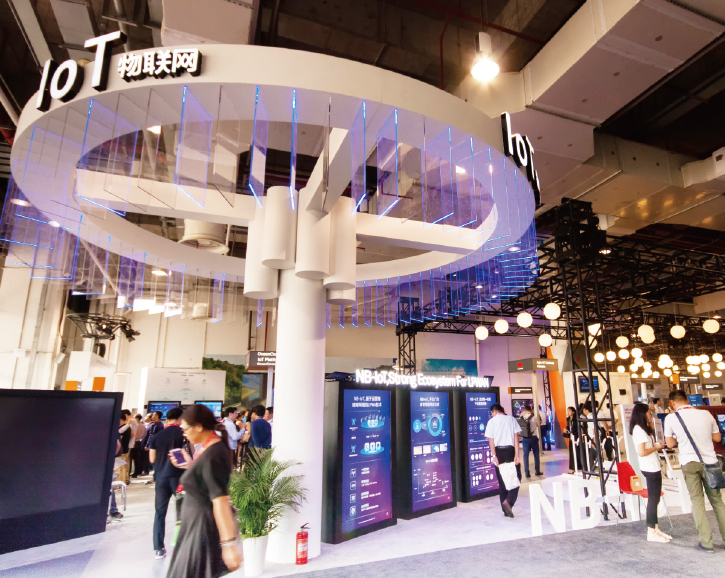 While the COVID-19 outbreak has shown signs of slowing down, no precautionary measure should be relaxed. Ian Fok, the Chamber’s Life Honorary Chairman (NPC Deputy), thought this is a great opportunity to improve the healthcare system and to promote the nation’s health. Therefore, in this year’s “Two Sessions”, he submitted four proposals in the areas of healthcare, Chinese medicine, and the development of martial arts.
While the COVID-19 outbreak has shown signs of slowing down, no precautionary measure should be relaxed. Ian Fok, the Chamber’s Life Honorary Chairman (NPC Deputy), thought this is a great opportunity to improve the healthcare system and to promote the nation’s health. Therefore, in this year’s “Two Sessions”, he submitted four proposals in the areas of healthcare, Chinese medicine, and the development of martial arts.
Fok pointed out that while the flow of people and goods within the Greater Bay Area is frequent, there is still much room for strengthening in terms of the legal basis and systemic protection that target the coordination of public health in the Greater Bay Area. An immediate monitoring and communication mechanism regarding public health information of the three areas is still lacking. As a result, effective response to contingency public health incidents may not be possible for the time being. As such, he proposed that more work should be done in the legal, system protection and information communication aspects, and a co-operation platform for public health should be set up. Besides, Fok also pointed out that the COVID-19 outbreak has highlighted much room for improvement in the hygiene habits of Chinese nationals, as well as in the service system of public health in China. He opined that a strong “Healthy China” protective barrier can be built through education, day-to-day habits, and martial arts training.
In terms of culture, Fok reckoned that Chinese medicine is a treasure left to us by the predecessors of our motherland. However, the passing on and development of Chinese medicine are yet to be satisfactory. As such, we should ride on this very time of the revival of the Chinese nation, and work to bring glory back to Chinese medicine in the new era. He pointed out in his proposal that the reform of Chinese medicine can take place in its system and education. For example, a law to protect Chinese medicine can be formulated, and Chinese medicine can be promoted in school, and Chinese medicine can be empowered to shoulder the mission of exporting Chinese cultural value to the world. Furthermore, as a long-term advocate to the development of martial arts, Fok mentioned there is still inadequacy in its growth. He believed that this national art should place a stronger focus on theoretical studies. It should be complemented by a comprehensive system, and various associations and organizations should be managed in a modernized way. He hoped that Chinese martial arts can once again be popularized throughout China and even across the world.
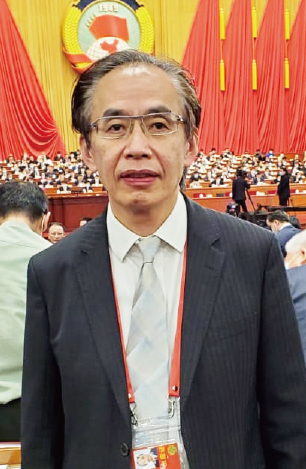
David Fong: National Security Law will Keep Hong Kong Prosperous and Stable
 David Fong, the Chamber’s Life Honorary Chairman (CPPCC National Committee Member), welcomes the proposed national security law for Hong Kong as it will safeguard the city’s long-term prosperity, stability and special status. In 2020, Heritage Foundation replaced Hong Kong with Singapore as the world’s freest economy. Hong Kong’s economy was rated the freest in the world from 1995 through 2019, but it lost its throne due to the social turmoil occurring since June last year. In Fong’s view, ranking is not the most important thing. Instead, long-term prosperity stability under the “One Country, Two Systems” principle is crucial to Hong Kong’s development.
David Fong, the Chamber’s Life Honorary Chairman (CPPCC National Committee Member), welcomes the proposed national security law for Hong Kong as it will safeguard the city’s long-term prosperity, stability and special status. In 2020, Heritage Foundation replaced Hong Kong with Singapore as the world’s freest economy. Hong Kong’s economy was rated the freest in the world from 1995 through 2019, but it lost its throne due to the social turmoil occurring since June last year. In Fong’s view, ranking is not the most important thing. Instead, long-term prosperity stability under the “One Country, Two Systems” principle is crucial to Hong Kong’s development.
He lamented that members of the Hong Kong business community have lost confidence because of the endless social turmoil. Many businesses have taken years to build up, once eliminated, they will unlikely be able to make a comeback. Many SMEs can see the light at the end of the COVID-19 pandemic tunnel, but worry that the ongoing social unrest will cast them into darkness again. He stressed that Hong Kong businesses managed to overcome difficulties every time as they are accustomed to cyclical economic fluctuations, but only in the absence of social turmoil.
Fong added that many SMEs indicated they would rather leave the market with a loss than continue to operate. Despite a significant reduction in rents, the unrest of the past few months has caused them to have unpredictable fears for the safety of themselves and customers. Most businesses are not interested in politics. They just want to seek a stable life for themselves, their families and their employees. As long as there is law and order, customers can feel comfortable socialising, enjoying food and shopping. Everyone sincerely hopes that Hong Kong will soon return to the right track to peace and tranquillity, with economic prosperity also just around the corner.
Fong therefore believes that the proposed national security law will rescue Hong Kong. Hong Kong is not the only city to be protected by national security regulations. Most Western countries have passed and continued to tighten national security legislation over the years. Macao is a case in point. It has a national security law, but its residents live a normal life. There is no need to worry if you do not violate the law, which is no different from other laws in Hong Kong.
He believes that the proposed legislation will bring other benefits, including the rapid restoration of free individual travel and night entertainment; increased attraction of foreign investors to establish headquarters in Hong Kong to provide more employment opportunities for locals and foreigners; and reduced risk of terrorist activities to contribute to world peace and stable development of the region, which is one of the steps towards “a community of shared future for mankind” proposed by President Xi Jinping.




